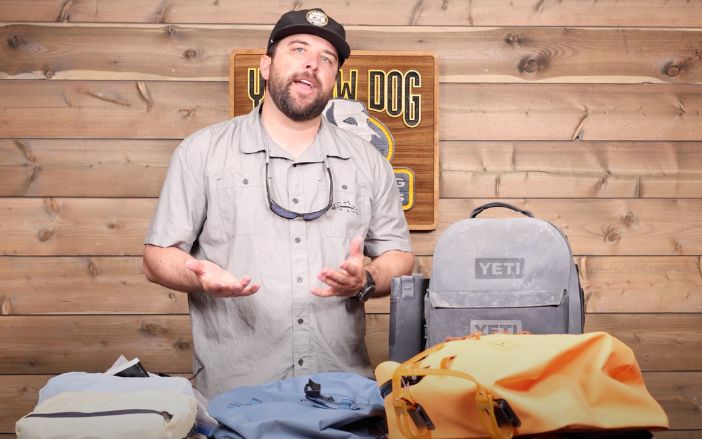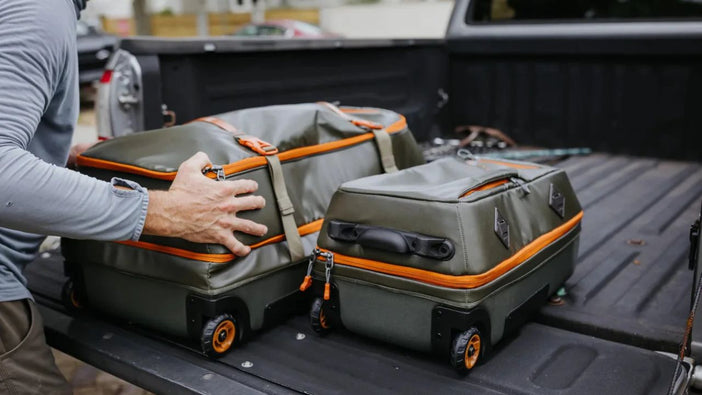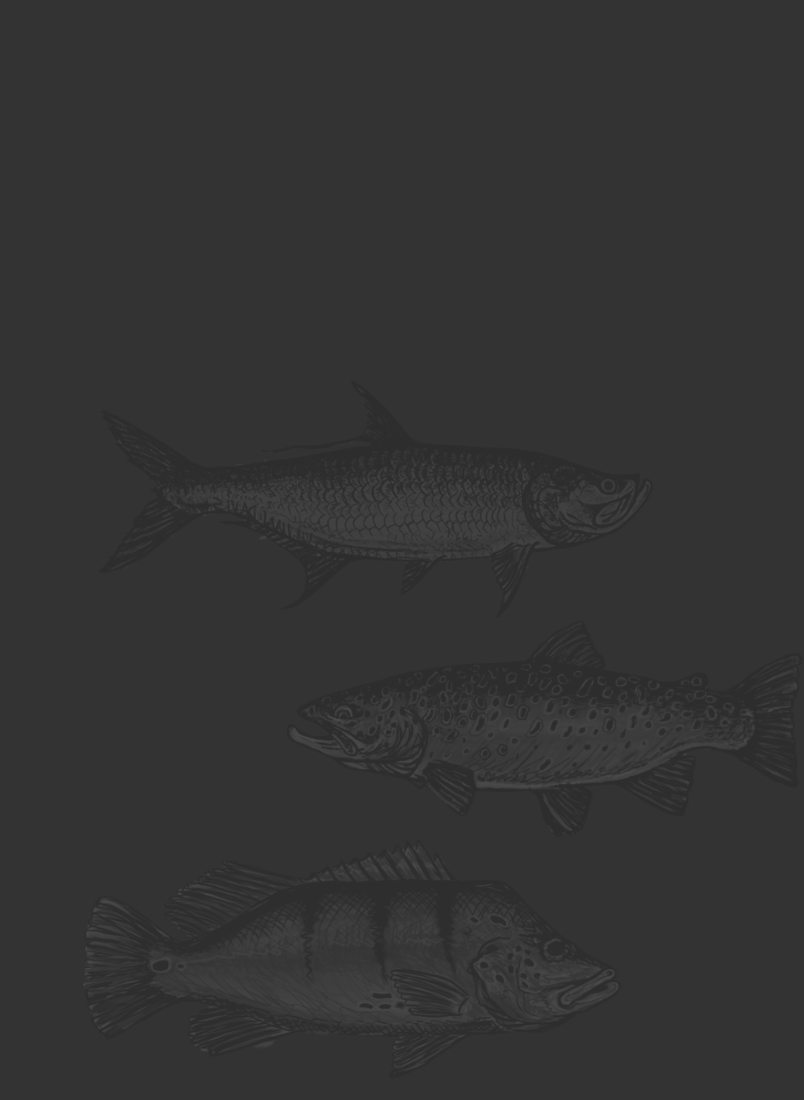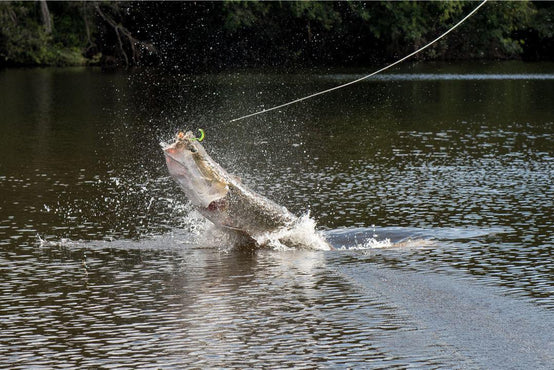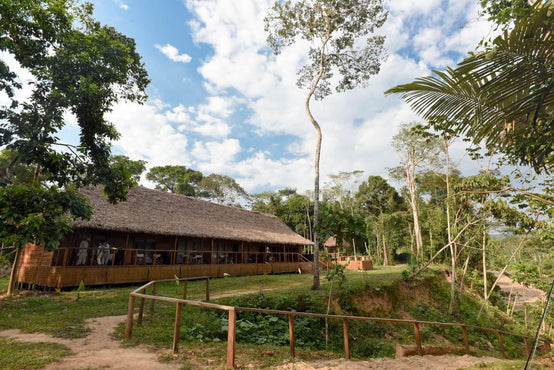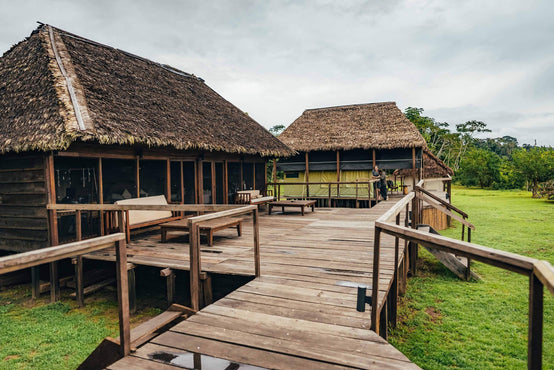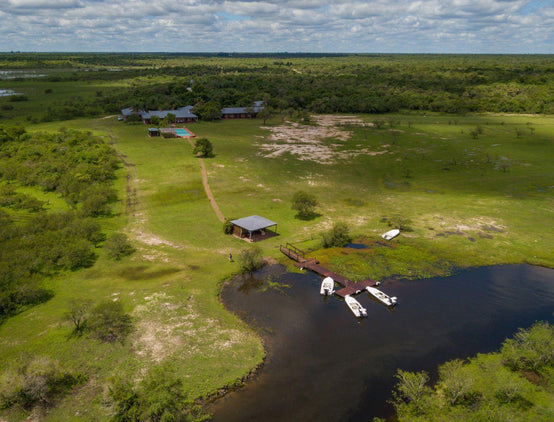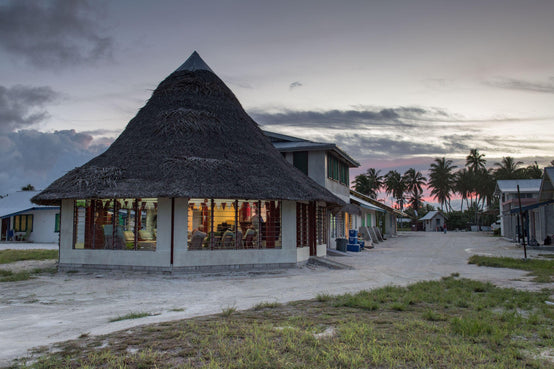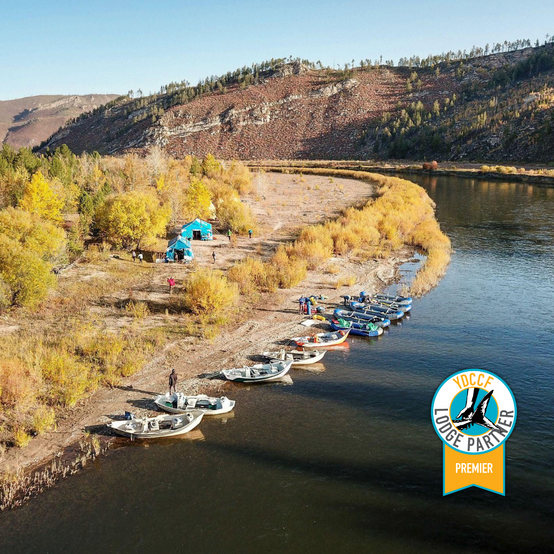
Himalayan Outback





Lodging Details
The camp is located on the banks of the Saryu River approximately 1.5 miles upstream from the Saryu’s confluence with the Mahakali River. The camp itself can accommodate up to four anglers per week (six maximum for intact groups that know each other) in heavy-duty, four-layer safari-style tents. Each angler will be accommodated in an individual and spacious tent that is furnished with the very best British campaign-style furniture and a comfortable double bed (or two single beds on request) kitted out with full linens and blankets. Each room also features side tables, dressing tables, chairs, clothes racks, and luggage racks. All furniture is made from hardwoods and sourced from J & R Guram's "Campaign Furniture Collection." The camp also has full bathroom facilities with proper toilets (one for each tent), showers, and hot and cold running water.
The main dining area for camp is a large, outdoor covered structure with a dining table that can seat up to eight people. This is the main social and gathering area for camp. There is also an outdoor bonfire area with comfortable chairs – perfect for relaxing in the evenings, enjoying drinks and cigars, and sharing stories from your day on the river. The Himalayan Outback takes the comfort and enjoyment of their guests very seriously, and you can expect extraordinary service from an attentive and well-trained staff.
Food and Beverages
Breakfast is served each morning in the outdoor dining area of camp before heading off for your day of fishing on the river. It is possible to pack a lunch and take this with you for your day of fishing, or you can easily return to camp for a mid-day lunch break and an afternoon nap. After each day of fishing, a full buffet-style dinner will be served in the outdoor dining area, with a unique and gourmet menu prepared by the in-house chef. The menu is a mix of regional and Himalayan cuisine, traditional Indian food, and continental fare.
Typical Length of Stay
Trip packages run anywhere from six (6) to ten (10) days. Please contact Yellow Dog for more details and specific rates.
Non-Angling Activities and Options
While in camp, non-anglers or anglers looking to take a break from fishing can hike the area, explore nearby towns and villages, visit the temple at the nearby confluence, or recreate on the river. Pancheshwar (the village closest to camp) is located on the border with Nepal. This remote village is a well-known destination for those with an interest in bird watching. A walk to the nearby villages offers a glimpse into the simple and unspoiled life of an area that has been almost forgotten by the rest of the world. An ancient temple, located at the confluence of the mighty Mahakali and the Saryu River, is a delight for photographers. The Himalayan Outback can customize itineraries to include visits to the Jim Corbett Tiger Reserve, guided visits to Kumaon villages, mountain hikes, birding walks, or a drive to view some of the world’s highest Himalayan ranges. Trip arrangements can also be made on either the front or back end of trip to visit the region of Rajasthan, which is known for its incredible palaces, including the Taj Mahal.
Internet / Communications
Wi-Fi is available in all New Delhi hotels, and cell coverage throughout the country is very reliable. Wi-Fi and cell service are usually available in camp, however due to the remote location, coverage may be slow or spotty.

How To Get There
Your trip starts upon arrival at New Delhi’s Indira Gandhi International Airport (DEL), where you will be met by a representative from The Himalayan Outback. Direct international flights to Delhi are available through numerous international cities. On arrival into Delhi, you will be met and collected at the international airport and taken to a hotel in the city, where you will overnight. Double occupancy rooms at the Roseate House Hotel (5 Star) are included in your standard trip package, or you can opt to upgrade to Delhi’s historic and magnificent Imperial Hotel. The Imperial New Delhi was opened in 1936 as the first hotel in New Delhi. One of the “Grand Dames of the East”, the hotel features white marble colonnades, verdant gardens, and rooms and suites replete with Italian marble floors, polished Burma teak, Persian hand-knotted carpets, antique chandeliers, and rosewood furniture.
After an overnight in Delhi, you will begin your journey to the river and the fishing camp near the small frontier village of Pancheshwar. From Delhi, guests have two (2) options for reaching camp: by air or by train. In the end, the journey takes the same amount of time (when you factor in airport check-in processes, security, etc.) so it is up to each angler to decide their preferred transfer method. We will say that if you have never experienced India by train, that the rail option is quite the experience!
The Himalayan Outback – Saryu River Trip Itinerary
Day 1
Arrive in Delhi, where you will be met and chauffeured to the Roseate House (five miles from the airport) of the Imperial Hotel. No meals included on this day.
Day 2
You have the option of catching an early morning train (A/C First Class) to Rudarpur (a trip of about four hours) accompanied by one of the THO staff members, or a late morning flight to Pantnagar. Upon arrival to either location, you will then be driven to the fishing camp at Pancheshwar on the Saryu River. Drive time is approx. 5.5 hours. All meals are included during this travel day.
Day 3-8
Enjoy six (6) full days of guided fishing based out of the Saryu River Camp. All meals and services are included.
Day 9
Drive back to either to Rudarpur or Pantnagar, depending on whether you are taking the train back to Delhi or flying. Upon arrival in Delhi, you will be met and transferred to your hotel for your final night in India. Breakfast and lunch are included during this travel day.
Day 10
The hotel concierge will arrange your transfer to New Delhi International Airport in order to catch your flight back home. Check out is at 12 noon.
Breakfast is included.
Arrival and Departure Details / Times
Yellow Dog will be happy to work with you to line up the correct international flight itinerary and transfers.
Documents Required
All foreign travelers to India must be in possession of a passport that is valid for at least six months past the duration of your stay in India. Additionally, passport must have at least two blank pages remaining and cannot be damaged, delaminated, torn, or mutilated in any way. Note that damaged and torn passports WILL NOT be accepted by the airlines as proof of identity for travel. Citizens of most countries (including the U.S.) will need a visa to visit India. There are no exceptions. If your trip includes a visit to Nepal, Bhutan or Sri Lanka and requires you to return to India for your international flight home, you will have to apply for a double or multiple entry Indian visa. Please be aware that is the traveler’s responsibility to obtain all correct documentation prior to arriving in India. All foreign travelers to India must be in possession of a passport that is valid for at least six months beyond the completion of their trip. Citizens of all countries also need a visa to visit India. There are no exceptions. Yellow Dog will be happy to assist with visa applications and information for India.
Travel Arrangements
Yellow Dog provides airline reservations ad ticketing assistance through etcTravel Group, and a full-service airline logistics agent that can help book airline tickets, hotels, rental cars, and more. You can click here to request a quote or contact Yellow Dog for more information at 406-585-8667. etcTravel Group offers dedicated support services for all Yellow Dog clients. Service fees may apply when booking or researching tickets, and etcTravel will discuss this with you before sending quotes.
Travel Tools
– Airline Ticketing
– Moon Phases
– Rent This Rod
– Trip Insurance and Emergency Evacuation
– Global Rescue Membership

General Information
While there are a number of interesting fish that can be included on the list of world’s toughest freshwater species, the Mahseer is without doubt near the very top of that list. Although it bears a visual resemblance to a large, powerful carp (and it can be equally wary), the Golden Mahseer is one of the most spectacularly unique and interesting fish on the planet. Heralded as the “aquatic Tiger of the Asian sub-continent”, the Mahseer is an incredibly beautiful fish, with iridescent golden scales, spectacular colors, and blue-tipped scales covering powerful flanks. Massive, bucket-shaped fins give this fish immense power and strength – the perfect design for its existence in Himalayan river currents. That same strength also gives the Mahseer the ability to strip line from a fly reel with unstoppable, finger-burning speed. In the cold, fast-flowing rivers of Northern India, trophy Mahseer can reach trophy sizes in the in 30-to-50-pound range. Fly-fishing for the Himalayan Mahseer is not for the faint-hearted, and devotees of notoriously finicky fish like Atlantic salmon, steelhead, and permit will bring the right perspectives and expectations to these Indian frontier rivers. The Mahseer is the goddess of India’s most pristine Himalayan Rivers, and hooking one of these mystical creatures is guaranteed to leave you with an amazing sense of accomplishment and a desire for more action.
On the Saryu River, all fishing is done while wading, and most areas of the river are accessed by hiking up and down stream. In October and November, the outfitter offers anglers the option of full day of rafting down the Saryu, where you use the raft to cover more distance, stopping to fish different pools, runs and tail-outs. This option involves a three-hour drive from camp and a picnic lunch will be served along the way. There is an additional cost for this option, and it is only booked and arranged on-site as it is dependent on weather and water flows. For those anglers interested in walking and fishing the much larger Mahakali River (approximately 1.5 miles downstream from camp) it can be accessed by walking a couple of hours from the confluence. A lodge vehicle can transport you to the confluence, and from there you can walk up or down river.
The Fishing Seasons for Mahseer
The Golden Mahseer fishing in this part of India is best on either side of the traditional Monsoon period. As such, there are two prime windows for fly fishing in the Himalayas for Mahseer: the spring season of February through May, and the fall season from mid September through November. The months of April and May have previously produced the largest Mahseer caught on the fly, but this is also the hottest time of the overall fishing season. For those interested in Spey fishing, the water levels during the September through November timeframe are perhaps best suited to double-handed rods.
Spring Season
By late February, the region’s short winter eases into a beautiful spring – usually by early March. This results in an immediate increase in fish activity. As area water temperatures rise consistently, Mahseer that were largely inactive and sluggish during the winter months begin feeding aggressively – hunting in the shallows and feeding on both baitfish and insect hatches. During the months of March and April, the rivers are typically clear and low, and the weather is generally settled. Scattered thunderstorms and rain can occasionally discolor the water, but fresh rain can also increase the chances for moving and fresh fish. As spring progresses towards the month of May, the heat intensifies and the snowmelt from the Himalayan ranges triggers another up-river migration of Mahseer. During this time, large numbers of Mahseer congregate in “hot-spots” (such as river confluences) in anticipation of the approaching monsoons, feeding voraciously whenever given the opportunity as they prepare for the yearly migratory ritual during the big water. The spring months are also a great time of the year to combine fishing with wildlife safaris.
Fall Season
A large part of the spawning ritual takes place during the monsoons (July through mid-September), and in this raging and hostile environment, none but the toughest fish will make it to the next season. As the monsoons dissipate towards mid-September, schools of Mahseer begin dropping back into their favorite resident pools, feeding voraciously before settling in for the winter. This marks the shorter fall fishing season, which lasts from late September through early November. October is a gorgeous time to pursue Mahseer, as the river is still a bit higher after the southwest monsoons, and the weather is sunny and comfortable. During this fall timeframe, large fish are returning back to the main rivers after spawning in smaller tributaries and side channels.
Equipment
It is recommended that anglers bring all rods, reels, waders, boots, flies, and terminal tackle. Yellow Dog will provide a comprehensive packing and equipment list (including a detailed fly list) once booking is confirmed.

Package Rates
Remember that Yellow Dog’s services are completely free! When you book a trip with Yellow Dog, you never pay more than when you book directly with the lodge or outfitter. All prices listed below are per person and quoted in US dollars. Packages usually run 12 full days in-country, although trips of other lengths of stay can be arranged. Please call Yellow Dog for details.
Double Occupancy Rates
$5,295 per person
Single Occupancy Rates
$5,895 per person
What’s Included:
- Meet and greet at the New Delhi International Airport (DEL)
- 2 nights in a hotel in New Delhi (front and back end of trip)
- 7 nights in private safari-style river camp (double occupancy)
- Meals from breakfast on day 2 to dinner on day 10
- All non-alcoholic beverages including bottled mineral water
- Daily guided fishing (2 anglers per guide)
- Fishing permits and taxes
- In-country flights or round-trip train tickets as listed in the itinerary
What’s Not Included:
- Accommodation, meals, or transfers not listed in the trip itinerary
- International flights to India
- Alcohol Beverages (wines and liquor) or non-alcoholic are not part of the meal plan of the lodge/hotel
- Tackle and flies
- Gratuities for drivers, fishing guides, and lodge staff
- Trip Insurance and costs associated with circumstances that are out of Himalayan Outback’s control like flight delays, bad weather, etc.
The Himalayan Outback
TERMS AND CONDITIONS – CANCELLATIONS
A non-refundable deposit of 50% per person is due at the time of booking for all trip packages and reservations, and final payment if due 90 days prior to arrival. Please note that for all Yellow Dog Flyfishing Adventures, L.L.C. (YDFA) itineraries booked with The Himalayan Outback, both deposits and final payments are non-refundable. If a cancelled package is resold by either the outfitter/operator or by Yellow Dog Flyfishing Adventures for the exact same itinerary, then a full refund will be sent minus a $100.00 per person cancellation fee charged by Yellow Dog. In the case of cancellation by the client, both deposit and final payment may be transferred to another guest or angler for those same (original) dates if facilitated and arranged by the client. For all reservations booked over a year in advance, the rates and dates indicated for the reservation are based on the current calendar year season and schedule, and final prices are subject to change for the following season. Because of the operator’s no refund and no credit policy, we highly recommend the purchase of trip cancellation insurance. In no event will the operator or Yellow Dog be responsible for any cancellation of services or operations due to inclement weather, any event of force majeure, airline delays, missed travel connections, train delays, or any other reason beyond the control of the operator. If your flights are late and connections are missed, the operator is not responsible for alternative travel arrangements including flights, hotels, meals and any other expenses incurred. Receipt of deposit and/or final payment is acknowledgment that registrant has read and accepts the deposit, cancellation, refund and responsibility clauses for these packages. Once again, Yellow Dog strongly recommends that anglers and guests purchase travel insurance these India packages.
Payment Terms for All Yellow Dog Trip Bookings
Unless otherwise noted on your invoice, for all trips less than 90 days out, full payment is required after receipt of the confirmation email to secure guides and reservations. For trips outside of 90 days, a 50% deposit is required upon receipt of confirmation email to confirm your reservations.
Yellow Dog accepts on-line payments via a secure payment portal – a quick and easy way to complete your trip reservation. Please reach out to accounting@yellowdogflyfishing.com to gain access.
Yellow Dog Flyfishing Standard Forms of Payment
- Debit card (fee-free) and credit card (3% convenience fee) - to pay via card please utilize the customer payment portal. If you need assistance, reach out to 406-585-8667 ext. #3
- Wires - please include name and/or invoice number for reference on your wire. Please reach out to accounting@yellowdogflyfishing.com for wiring instructions. (client is responsible for wiring fees)
- Physical check - please include your invoice number in the memo. Mail checks to 213 S. Willson Ave. Bozeman, MT, 59715
If you have any questions about alternate payment methods, please contact Yellow Dog at (406) 585-8667 ext. #3. We are available Monday through Friday, 9:00 AM to 5:00 PM MT.

"I’m back from my trip to India and I wanted to let you know it was a fabulous trip. The fishing was not easy, but it was great, and I caught plenty of nice fish. The accommodations and hospitality of the staff were outstanding. I learned so much from the guiding staff, and they are a blast to fish with. I can’t recall ever being treated so well. This was a truly unique experience. Thanks for all your help in getting this trip organized. It was a flawless process on Yellow Dog’s end as usual. This is trip any serious fly fisherman would enjoy!" - Craig W.
"Excellent all around! Will return!! Thank you so much." - Marc B.
"Truly an experience of a lifetime! Words cannot express how amazing of a trip this has been. The food, the staff, the fishing! all better than anyone could expect. On this trip I have found new experiences, new friends, joy with old friends and memories never forgotten!" - Craig L.
"The entire staff was excellent, the food was incredible, and the fishing was top notch. Add on the bird watching and hiking and the accommodations and generosity of the team here - It was one of the very best Fly Fishing destinations I have been to in over 30 years of exploring the world with fly rods. Thank you to all!" - Amy H.
"Favourite travel experience of my life. Each of the staff made the week even more special. Bittu was such an enthusiastic bird guide, so many "first" birds. Very thankful for Sundar looking over us at camp and for Pritam's safe driving. Tegbir was such a wonderful host and we can't thank Mickey enough for having a 5-star camp experience and I even caught a mahseer. Thanks to each of you for your kindness and generous hearts." - Nicole T.
"Such a wonderful trip to a new part of India for us and first time Mahseer Fishing. Bobby, Jacob, Sundar and the whole team were incredibly accommodating and beyond hospitable. Truly 5+ Star service. Anything we needed or wanted to do was taken care of. The fishing was one of a kind and Bobby's expertise was top notch. Jacob was also very helpful and knowledgeable considering this is his first season guiding and fishing for mahseer. The fishing was phenomenal as well especially the 26 lb mahseer on fly the last night! The only complaint we had was that the food and service was just too good. We were totally spoiled. It was an incredible experience and we would love to come back if possible. Thank you sirs!" - Eric & Alex V.
--
Tiger Safari Extension
ITINERARY:
Day 9 | Drive from Pancheshwar to Kotabagh – this is a 6 hour drive. We will be staying the night at Foothills Himalaya
Accommodation: Foothills Himalaya
All meals are included.
Day 10 | After a leisurely breakfast we will drive to Kaladungi (30 minutes) and visit the Jim Corbett Museum. The museum is located in the winter home of Jim Corbett. the legendary hunter, conservationist, angler, naturalist and writer. Some of the rooms still contain furniture from his time. We will continue on to Ramnagar, where the Corbett National Park is located (1 hour drive) - after lunch we will enter the core zone of the Park for an afternoon safari.
Once the safari is over we will drive (1 ½ hours) to your lodge. It is not uncommon to see animals from the Lodge itself.
Accommodation: Jim’s Jungle Retreat at Corbett
All meals included
Day 11 | Enjoy a morning and evening safari in the core zone of the Jim Corbett National Park with an excellent Naturalist.
Accommodation: Jim’s Jungle Retreat at Corbett
All meals included
Day 12 | Drive from your lodge at Corbett to Delhi (5 hours). Check into the Roseate House (5 star hotel) located near the New Delhi International Airport.
Accommodation: Roseate House, Aerocity, New Delhi
Breakfast and lunch included
Day 13 | The concierge will arrange your transfer to the Airport in order to catch your flight back home. Check out is at 10 am.
Accommodation: None
Only breakfast is included.
Rates:
Double Occupancy Rates
USD $ 1,975 per person
Single Occupancy Rates
USD $ 2,450 per person

Lodging Details
The camp is located on the banks of the Saryu River approximately 1.5 miles upstream from the Saryu’s confluence with the Mahakali River. The camp itself can accommodate up to four anglers per week (six maximum for intact groups that know each other) in heavy-duty, four-layer safari-style tents. Each angler will be accommodated in an individual and spacious tent that is furnished with the very best British campaign-style furniture and a comfortable double bed (or two single beds on request) kitted out with full linens and blankets. Each room also features side tables, dressing tables, chairs, clothes racks, and luggage racks. All furniture is made from hardwoods and sourced from J & R Guram's "Campaign Furniture Collection." The camp also has full bathroom facilities with proper toilets (one for each tent), showers, and hot and cold running water.
The main dining area for camp is a large, outdoor covered structure with a dining table that can seat up to eight people. This is the main social and gathering area for camp. There is also an outdoor bonfire area with comfortable chairs – perfect for relaxing in the evenings, enjoying drinks and cigars, and sharing stories from your day on the river. The Himalayan Outback takes the comfort and enjoyment of their guests very seriously, and you can expect extraordinary service from an attentive and well-trained staff.
Food and Beverages
Breakfast is served each morning in the outdoor dining area of camp before heading off for your day of fishing on the river. It is possible to pack a lunch and take this with you for your day of fishing, or you can easily return to camp for a mid-day lunch break and an afternoon nap. After each day of fishing, a full buffet-style dinner will be served in the outdoor dining area, with a unique and gourmet menu prepared by the in-house chef. The menu is a mix of regional and Himalayan cuisine, traditional Indian food, and continental fare.
Typical Length of Stay
Trip packages run anywhere from six (6) to ten (10) days. Please contact Yellow Dog for more details and specific rates.
Non-Angling Activities and Options
While in camp, non-anglers or anglers looking to take a break from fishing can hike the area, explore nearby towns and villages, visit the temple at the nearby confluence, or recreate on the river. Pancheshwar (the village closest to camp) is located on the border with Nepal. This remote village is a well-known destination for those with an interest in bird watching. A walk to the nearby villages offers a glimpse into the simple and unspoiled life of an area that has been almost forgotten by the rest of the world. An ancient temple, located at the confluence of the mighty Mahakali and the Saryu River, is a delight for photographers. The Himalayan Outback can customize itineraries to include visits to the Jim Corbett Tiger Reserve, guided visits to Kumaon villages, mountain hikes, birding walks, or a drive to view some of the world’s highest Himalayan ranges. Trip arrangements can also be made on either the front or back end of trip to visit the region of Rajasthan, which is known for its incredible palaces, including the Taj Mahal.
Internet / Communications
Wi-Fi is available in all New Delhi hotels, and cell coverage throughout the country is very reliable. Wi-Fi and cell service are usually available in camp, however due to the remote location, coverage may be slow or spotty.

How To Get There
Your trip starts upon arrival at New Delhi’s Indira Gandhi International Airport (DEL), where you will be met by a representative from The Himalayan Outback. Direct international flights to Delhi are available through numerous international cities. On arrival into Delhi, you will be met and collected at the international airport and taken to a hotel in the city, where you will overnight. Double occupancy rooms at the Roseate House Hotel (5 Star) are included in your standard trip package, or you can opt to upgrade to Delhi’s historic and magnificent Imperial Hotel. The Imperial New Delhi was opened in 1936 as the first hotel in New Delhi. One of the “Grand Dames of the East”, the hotel features white marble colonnades, verdant gardens, and rooms and suites replete with Italian marble floors, polished Burma teak, Persian hand-knotted carpets, antique chandeliers, and rosewood furniture.
After an overnight in Delhi, you will begin your journey to the river and the fishing camp near the small frontier village of Pancheshwar. From Delhi, guests have two (2) options for reaching camp: by air or by train. In the end, the journey takes the same amount of time (when you factor in airport check-in processes, security, etc.) so it is up to each angler to decide their preferred transfer method. We will say that if you have never experienced India by train, that the rail option is quite the experience!
The Himalayan Outback – Saryu River Trip Itinerary
Day 1
Arrive in Delhi, where you will be met and chauffeured to the Roseate House (five miles from the airport) of the Imperial Hotel. No meals included on this day.
Day 2
You have the option of catching an early morning train (A/C First Class) to Rudarpur (a trip of about four hours) accompanied by one of the THO staff members, or a late morning flight to Pantnagar. Upon arrival to either location, you will then be driven to the fishing camp at Pancheshwar on the Saryu River. Drive time is approx. 5.5 hours. All meals are included during this travel day.
Day 3-8
Enjoy six (6) full days of guided fishing based out of the Saryu River Camp. All meals and services are included.
Day 9
Drive back to either to Rudarpur or Pantnagar, depending on whether you are taking the train back to Delhi or flying. Upon arrival in Delhi, you will be met and transferred to your hotel for your final night in India. Breakfast and lunch are included during this travel day.
Day 10
The hotel concierge will arrange your transfer to New Delhi International Airport in order to catch your flight back home. Check out is at 12 noon.
Breakfast is included.
Arrival and Departure Details / Times
Yellow Dog will be happy to work with you to line up the correct international flight itinerary and transfers.
Documents Required
All foreign travelers to India must be in possession of a passport that is valid for at least six months past the duration of your stay in India. Additionally, passport must have at least two blank pages remaining and cannot be damaged, delaminated, torn, or mutilated in any way. Note that damaged and torn passports WILL NOT be accepted by the airlines as proof of identity for travel. Citizens of most countries (including the U.S.) will need a visa to visit India. There are no exceptions. If your trip includes a visit to Nepal, Bhutan or Sri Lanka and requires you to return to India for your international flight home, you will have to apply for a double or multiple entry Indian visa. Please be aware that is the traveler’s responsibility to obtain all correct documentation prior to arriving in India. All foreign travelers to India must be in possession of a passport that is valid for at least six months beyond the completion of their trip. Citizens of all countries also need a visa to visit India. There are no exceptions. Yellow Dog will be happy to assist with visa applications and information for India.
Travel Arrangements
Yellow Dog provides airline reservations ad ticketing assistance through etcTravel Group, and a full-service airline logistics agent that can help book airline tickets, hotels, rental cars, and more. You can click here to request a quote or contact Yellow Dog for more information at 406-585-8667. etcTravel Group offers dedicated support services for all Yellow Dog clients. Service fees may apply when booking or researching tickets, and etcTravel will discuss this with you before sending quotes.
Travel Tools
– Airline Ticketing
– Moon Phases
– Rent This Rod
– Trip Insurance and Emergency Evacuation
– Global Rescue Membership

General Information
While there are a number of interesting fish that can be included on the list of world’s toughest freshwater species, the Mahseer is without doubt near the very top of that list. Although it bears a visual resemblance to a large, powerful carp (and it can be equally wary), the Golden Mahseer is one of the most spectacularly unique and interesting fish on the planet. Heralded as the “aquatic Tiger of the Asian sub-continent”, the Mahseer is an incredibly beautiful fish, with iridescent golden scales, spectacular colors, and blue-tipped scales covering powerful flanks. Massive, bucket-shaped fins give this fish immense power and strength – the perfect design for its existence in Himalayan river currents. That same strength also gives the Mahseer the ability to strip line from a fly reel with unstoppable, finger-burning speed. In the cold, fast-flowing rivers of Northern India, trophy Mahseer can reach trophy sizes in the in 30-to-50-pound range. Fly-fishing for the Himalayan Mahseer is not for the faint-hearted, and devotees of notoriously finicky fish like Atlantic salmon, steelhead, and permit will bring the right perspectives and expectations to these Indian frontier rivers. The Mahseer is the goddess of India’s most pristine Himalayan Rivers, and hooking one of these mystical creatures is guaranteed to leave you with an amazing sense of accomplishment and a desire for more action.
On the Saryu River, all fishing is done while wading, and most areas of the river are accessed by hiking up and down stream. In October and November, the outfitter offers anglers the option of full day of rafting down the Saryu, where you use the raft to cover more distance, stopping to fish different pools, runs and tail-outs. This option involves a three-hour drive from camp and a picnic lunch will be served along the way. There is an additional cost for this option, and it is only booked and arranged on-site as it is dependent on weather and water flows. For those anglers interested in walking and fishing the much larger Mahakali River (approximately 1.5 miles downstream from camp) it can be accessed by walking a couple of hours from the confluence. A lodge vehicle can transport you to the confluence, and from there you can walk up or down river.
The Fishing Seasons for Mahseer
The Golden Mahseer fishing in this part of India is best on either side of the traditional Monsoon period. As such, there are two prime windows for fly fishing in the Himalayas for Mahseer: the spring season of February through May, and the fall season from mid September through November. The months of April and May have previously produced the largest Mahseer caught on the fly, but this is also the hottest time of the overall fishing season. For those interested in Spey fishing, the water levels during the September through November timeframe are perhaps best suited to double-handed rods.
Spring Season
By late February, the region’s short winter eases into a beautiful spring – usually by early March. This results in an immediate increase in fish activity. As area water temperatures rise consistently, Mahseer that were largely inactive and sluggish during the winter months begin feeding aggressively – hunting in the shallows and feeding on both baitfish and insect hatches. During the months of March and April, the rivers are typically clear and low, and the weather is generally settled. Scattered thunderstorms and rain can occasionally discolor the water, but fresh rain can also increase the chances for moving and fresh fish. As spring progresses towards the month of May, the heat intensifies and the snowmelt from the Himalayan ranges triggers another up-river migration of Mahseer. During this time, large numbers of Mahseer congregate in “hot-spots” (such as river confluences) in anticipation of the approaching monsoons, feeding voraciously whenever given the opportunity as they prepare for the yearly migratory ritual during the big water. The spring months are also a great time of the year to combine fishing with wildlife safaris.
Fall Season
A large part of the spawning ritual takes place during the monsoons (July through mid-September), and in this raging and hostile environment, none but the toughest fish will make it to the next season. As the monsoons dissipate towards mid-September, schools of Mahseer begin dropping back into their favorite resident pools, feeding voraciously before settling in for the winter. This marks the shorter fall fishing season, which lasts from late September through early November. October is a gorgeous time to pursue Mahseer, as the river is still a bit higher after the southwest monsoons, and the weather is sunny and comfortable. During this fall timeframe, large fish are returning back to the main rivers after spawning in smaller tributaries and side channels.
Equipment
It is recommended that anglers bring all rods, reels, waders, boots, flies, and terminal tackle. Yellow Dog will provide a comprehensive packing and equipment list (including a detailed fly list) once booking is confirmed.

Package Rates
Remember that Yellow Dog’s services are completely free! When you book a trip with Yellow Dog, you never pay more than when you book directly with the lodge or outfitter. All prices listed below are per person and quoted in US dollars. Packages usually run 12 full days in-country, although trips of other lengths of stay can be arranged. Please call Yellow Dog for details.
Double Occupancy Rates
$5,295 per person
Single Occupancy Rates
$5,895 per person
What’s Included:
- Meet and greet at the New Delhi International Airport (DEL)
- 2 nights in a hotel in New Delhi (front and back end of trip)
- 7 nights in private safari-style river camp (double occupancy)
- Meals from breakfast on day 2 to dinner on day 10
- All non-alcoholic beverages including bottled mineral water
- Daily guided fishing (2 anglers per guide)
- Fishing permits and taxes
- In-country flights or round-trip train tickets as listed in the itinerary
What’s Not Included:
- Accommodation, meals, or transfers not listed in the trip itinerary
- International flights to India
- Alcohol Beverages (wines and liquor) or non-alcoholic are not part of the meal plan of the lodge/hotel
- Tackle and flies
- Gratuities for drivers, fishing guides, and lodge staff
- Trip Insurance and costs associated with circumstances that are out of Himalayan Outback’s control like flight delays, bad weather, etc.
The Himalayan Outback
TERMS AND CONDITIONS – CANCELLATIONS
A non-refundable deposit of 50% per person is due at the time of booking for all trip packages and reservations, and final payment if due 90 days prior to arrival. Please note that for all Yellow Dog Flyfishing Adventures, L.L.C. (YDFA) itineraries booked with The Himalayan Outback, both deposits and final payments are non-refundable. If a cancelled package is resold by either the outfitter/operator or by Yellow Dog Flyfishing Adventures for the exact same itinerary, then a full refund will be sent minus a $100.00 per person cancellation fee charged by Yellow Dog. In the case of cancellation by the client, both deposit and final payment may be transferred to another guest or angler for those same (original) dates if facilitated and arranged by the client. For all reservations booked over a year in advance, the rates and dates indicated for the reservation are based on the current calendar year season and schedule, and final prices are subject to change for the following season. Because of the operator’s no refund and no credit policy, we highly recommend the purchase of trip cancellation insurance. In no event will the operator or Yellow Dog be responsible for any cancellation of services or operations due to inclement weather, any event of force majeure, airline delays, missed travel connections, train delays, or any other reason beyond the control of the operator. If your flights are late and connections are missed, the operator is not responsible for alternative travel arrangements including flights, hotels, meals and any other expenses incurred. Receipt of deposit and/or final payment is acknowledgment that registrant has read and accepts the deposit, cancellation, refund and responsibility clauses for these packages. Once again, Yellow Dog strongly recommends that anglers and guests purchase travel insurance these India packages.
Payment Terms for All Yellow Dog Trip Bookings
Unless otherwise noted on your invoice, for all trips less than 90 days out, full payment is required after receipt of the confirmation email to secure guides and reservations. For trips outside of 90 days, a 50% deposit is required upon receipt of confirmation email to confirm your reservations.
Yellow Dog accepts on-line payments via a secure payment portal – a quick and easy way to complete your trip reservation. Please reach out to accounting@yellowdogflyfishing.com to gain access.
Yellow Dog Flyfishing Standard Forms of Payment
- Debit card (fee-free) and credit card (3% convenience fee) - to pay via card please utilize the customer payment portal. If you need assistance, reach out to 406-585-8667 ext. #3
- Wires - please include name and/or invoice number for reference on your wire. Please reach out to accounting@yellowdogflyfishing.com for wiring instructions. (client is responsible for wiring fees)
- Physical check - please include your invoice number in the memo. Mail checks to 213 S. Willson Ave. Bozeman, MT, 59715
If you have any questions about alternate payment methods, please contact Yellow Dog at (406) 585-8667 ext. #3. We are available Monday through Friday, 9:00 AM to 5:00 PM MT.

"I’m back from my trip to India and I wanted to let you know it was a fabulous trip. The fishing was not easy, but it was great, and I caught plenty of nice fish. The accommodations and hospitality of the staff were outstanding. I learned so much from the guiding staff, and they are a blast to fish with. I can’t recall ever being treated so well. This was a truly unique experience. Thanks for all your help in getting this trip organized. It was a flawless process on Yellow Dog’s end as usual. This is trip any serious fly fisherman would enjoy!" - Craig W.
"Excellent all around! Will return!! Thank you so much." - Marc B.
"Truly an experience of a lifetime! Words cannot express how amazing of a trip this has been. The food, the staff, the fishing! all better than anyone could expect. On this trip I have found new experiences, new friends, joy with old friends and memories never forgotten!" - Craig L.
"The entire staff was excellent, the food was incredible, and the fishing was top notch. Add on the bird watching and hiking and the accommodations and generosity of the team here - It was one of the very best Fly Fishing destinations I have been to in over 30 years of exploring the world with fly rods. Thank you to all!" - Amy H.
"Favourite travel experience of my life. Each of the staff made the week even more special. Bittu was such an enthusiastic bird guide, so many "first" birds. Very thankful for Sundar looking over us at camp and for Pritam's safe driving. Tegbir was such a wonderful host and we can't thank Mickey enough for having a 5-star camp experience and I even caught a mahseer. Thanks to each of you for your kindness and generous hearts." - Nicole T.
"Such a wonderful trip to a new part of India for us and first time Mahseer Fishing. Bobby, Jacob, Sundar and the whole team were incredibly accommodating and beyond hospitable. Truly 5+ Star service. Anything we needed or wanted to do was taken care of. The fishing was one of a kind and Bobby's expertise was top notch. Jacob was also very helpful and knowledgeable considering this is his first season guiding and fishing for mahseer. The fishing was phenomenal as well especially the 26 lb mahseer on fly the last night! The only complaint we had was that the food and service was just too good. We were totally spoiled. It was an incredible experience and we would love to come back if possible. Thank you sirs!" - Eric & Alex V.
--
Tiger Safari Extension
ITINERARY:
Day 9 | Drive from Pancheshwar to Kotabagh – this is a 6 hour drive. We will be staying the night at Foothills Himalaya
Accommodation: Foothills Himalaya
All meals are included.
Day 10 | After a leisurely breakfast we will drive to Kaladungi (30 minutes) and visit the Jim Corbett Museum. The museum is located in the winter home of Jim Corbett. the legendary hunter, conservationist, angler, naturalist and writer. Some of the rooms still contain furniture from his time. We will continue on to Ramnagar, where the Corbett National Park is located (1 hour drive) - after lunch we will enter the core zone of the Park for an afternoon safari.
Once the safari is over we will drive (1 ½ hours) to your lodge. It is not uncommon to see animals from the Lodge itself.
Accommodation: Jim’s Jungle Retreat at Corbett
All meals included
Day 11 | Enjoy a morning and evening safari in the core zone of the Jim Corbett National Park with an excellent Naturalist.
Accommodation: Jim’s Jungle Retreat at Corbett
All meals included
Day 12 | Drive from your lodge at Corbett to Delhi (5 hours). Check into the Roseate House (5 star hotel) located near the New Delhi International Airport.
Accommodation: Roseate House, Aerocity, New Delhi
Breakfast and lunch included
Day 13 | The concierge will arrange your transfer to the Airport in order to catch your flight back home. Check out is at 10 am.
Accommodation: None
Only breakfast is included.
Rates:
Double Occupancy Rates
USD $ 1,975 per person
Single Occupancy Rates
USD $ 2,450 per person






-X2.jpg?v=1677102584208)








-X2.jpg?v=1677102584208)

























































